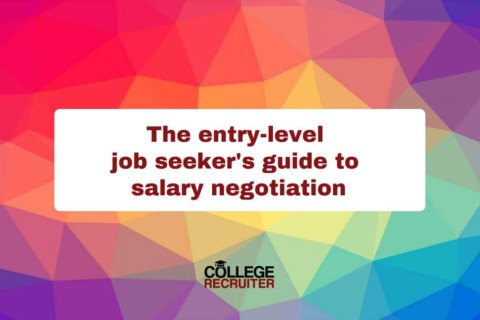Evaluating Job Offers
You’ve completed the application process, submitted your resume and cover letter, and had a successful interview (or two). Now you’ve received a job offer – congratulations! But how do you know if you’re receiving a comparable offer for the work you’ll be doing? And how do you make sense of the HR and legal jargon in benefits information? We’re here to help.
Don’t fee pressured to accept an offer on the spot. It’s fine – and often best – to ask for at least 24 hours after receiving a written offer to make a final decision, even if you fully intend to accept it. Note the emphasis on written – a verbal offer is not legally binding. Until you receive a written offer, nothing is legally binding – a verbal offer can be retracted or dismissed. If a company does not clearly state that they will be giving a written offer, state you require one.
During the application process or interviewing stages, you may have been informed about the salary range for this role. It’s always good to do some research about what the general salary is for your position to make sure you’re being fairly compensated and to have realistic expectations for what this position makes across the US. Use our salary resource page to help better understand what industry standards are in terms of pay. Before finalizing any negotiations, you can ask your employer about annual increases, what they are based on, and how they have been issued in previous years. Know that if you are in an entry level position, you will likely be making less than someone who has been doing the work for several years, but these salary increases should allow you to see how you would match their pay rate or broader industry standards within that time frame. Our salary resource page also provides information on how to negotiate your salary if you find yourself in a place where your experience or expertise puts you in strong place to do so.
Benefits may be negotiable at some organizations, or at least you should have a couple of options to choose from in terms of health care. Trying to decide whether to pick a plan with a high or low deductible? These resources can help you understand these terms and know what options you’re choosing from:
- NPR – 6 tips to help you pick the right insurance plan: a general guide not just for employees but for anyone shopping for health insurance
- SHRM – Health Benefits Glossary of Terms: a quick and easy resource to look up the terms used in your plan options
- Brian David Gilbert – A Terrible Guide to the Terrible Terminology of US Health Insurance: this video is very critical of health insurance in the US – however, it’s super informative and a fun watch
Aside from choosing insurance plans (medical, dental, vision, life, etc.), your benefits also include vacation time, holiday pay, flexibility and/or overtime options, professional memberships, child care, and retirement options. Benefits can make up about 40% of your total compensation so, if a company has slightly lower than average salary but very generous holiday and vacation options, then consider that as a part of the offer. Also, keep in mind that every company handles holidays and vacations different – some organizations may separate sick time from vacation time, some may not. Some organizations may offer floating holidays to use around federal holidays where many organizations may be closed. Companies may also do a retirement matching plan for funds such as 401Ks.
When you interviewed with for the role, you likely learned a bit about what it might be like to work for this organization. Take some time to reflect on what you learned. Would you enjoy working there? What are the personalities on our team, and will you be comfortable with the management or leadership style? If you got the impression that you might not get along with either your supervisor or your team during the interview, keep that in mind. Do your attitudes, values, and goals align with the company’s? What is the culture like? Is it more casual or more formal? How do people dress in the office and how do they interact with one another?
Consider what your commute will look like every day. Consider rush hour traffic, gas, winter weather, construction, work-from-home flexibility, and how far away you are from family, day care, and/or medical appointment locations. If you are able to work from home or fully remote, consider how that benefits your schedule. If you are offered a remote role, consider what working in your home each day will be like, what possible distractions or helpful focusing tools are available. Consider where your workspace will be and plan ahead if there are any office tools you’ll need to purchase or request from your company.
You may still have questions or need clarification regarding your offer. That’s perfectly normal! Reach out to your hiring manager or to HR with your questions.
Here are a few more resources that might also help you navigate your offer:
If you accepted the offer, what will happen next? Each company will have their own process, but here’s a general list of what you can expect:
- Verification: Offer letters and start dates may be contingent based on a background check, an unofficial transcript, a physical or drug test, proof of vaccination, or other information that you will need to provide.
- Onboarding: There will be paperwork you’ll need to complete, either prior to your first day or on your first day of work. This will include tax forms, accepting policies or employee handbooks, etc. An I-9 will be required on your first day – you will need to provide original documentation (such as your passport, birth certificate and Social Security Card, or work visa, to verify your identity and authorization to work in the US.
- Orientation: This is common step when you a new hire. It may be in person or virtual, and will likely cover some information on the history and/or culture of the organization, the employee handbook and company expectations, required trainings such as workplace conduct and reporting harassment, and information on choosing health insurance.
- Performance review: Many organizations will have 90-day evaluations for new hires. When starting a new position, work with your supervisor to set goals for the next cycle of performance evaluations.
This was adapted from a resource from Davenport University.








